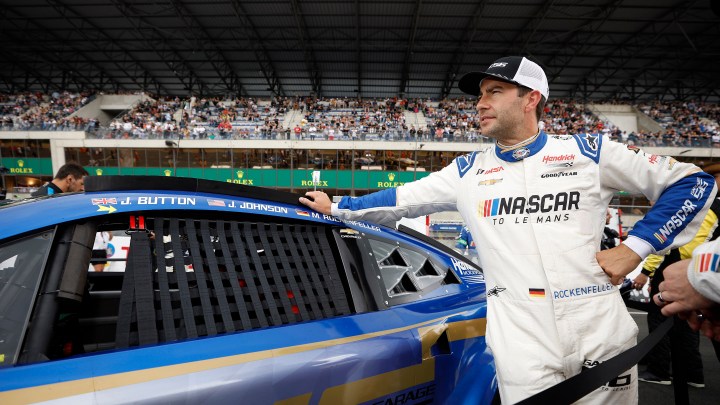
NASCAR’s run at Le Mans is only the start for global auto racing
NASCAR’s run at Le Mans is only the start for global auto racing

This month, Italian carmaker Ferrari took home top honors at the 100th running of Le Mans, the famed 24-hour road race in northwestern France. It’s a mostly European contest, but this year Americans had their moments. A Chevrolet Corvette, owned by General Moters, won its GT class, and a Cadillac running in the top “Hypercar” category made it to the winner’s podium.
And for many, it was another GM machine that stood out most: a NASCAR-style Camaro running in Le Mans as a very public experiment, a Franco-American blend of racing culture.
As it turns out, it was actually an American named France, Bill France, who established the oh-so-American NASCAR, back in 1948. Bill had always dreamed of bringing the National Association for Stock Car Auto Racing to Le Mans, a grueling test of drivers and machine. But a first effort fizzled back in 1976, when two American cars pooped out long before the checkered flag fell.
Fast forward to 2023: This is NASCAR’s 75th anniversary. And Bill France’s son, Jim, spearheaded a new effort to get this down-home Southern-barbecue flavored racing in front of a foie gras audience. A special racing class, called Garage 56, provided the opening. NASCAR brought in Chevy, its winningest manufacturer; Hendrick Motorsports, its winningest team; and a trio of champion drivers to enter a Camaro that looked and sounded like nothing else.
By rule, a car in the experimental class can’t win. But the Camaro ZL1, with its V8 engine caterwaul, drove the crowd wild. And the car actually finished all 24 hours of Le Mans, which was all the team was going for.
At several points, the car was able to run ahead of the GT class field, although a higher finish got thwarted by transmission failure late in the game. After an hour in the pit, the Chevy returned to at least finish the race, proving the concept and energizing its veteran drivers, including 2009 Formula One champion Jenson Button.
“If you haven’t seen this car live yet, it’s an absolute beast,” Button said. “When you see it go by and hear it, it just puts a massive smile on your face. And so for me after my long career in F1, I wanted to do stuff that was fun.”
Seven-time NASCAR champion Jimmie Johnson, another one of the car’s drivers at Le Mans, felt similarly. “I hate that it’s over, because we had such a good time,” Johnson said.
Is it over? Maybe not in an age of increasing globalization in sport. NASCAR’s current CEO Jim France has something closer to home in mind.
“I would love to see some European manufacturer, that makes a nice sedan that they sell in America, to decide to maybe put one of those in a NASCAR race some day,” he said. “That would be my ultimate goal.”
With both BMW and Mercedes, not to mention Hyundai, Nissan and Kia, all building cars in the American South, the heart of NASCAR country, maybe that’s not so far-fetched.
“I don’t think so, but I’ve got to convince some other people,” France said with a laugh. “A lot of great European cars are being built in America. They can make some good noise, too, if need be.”
And, turnabout being fair play, global motor sports are already moving stateside. For instance: Formula One. This spring, they ran a Grand Prix in Miami, with races in Austin and Las Vegas later this year. Can a foie gras hot dog — and an internationally streamed reality series starring NASCAR drivers, their wives, girlfriends and pit crews — really be far off?
Correction (June 26, 2023): A previous version of this story misspelled Hendrick Motorsports.
There’s a lot happening in the world. Through it all, Marketplace is here for you.
You rely on Marketplace to break down the world’s events and tell you how it affects you in a fact-based, approachable way. We rely on your financial support to keep making that possible.
Your donation today powers the independent journalism that you rely on. For just $5/month, you can help sustain Marketplace so we can keep reporting on the things that matter to you.











